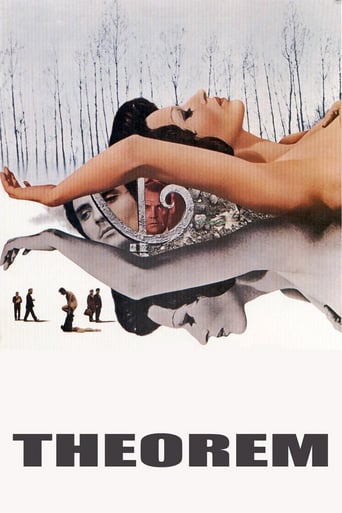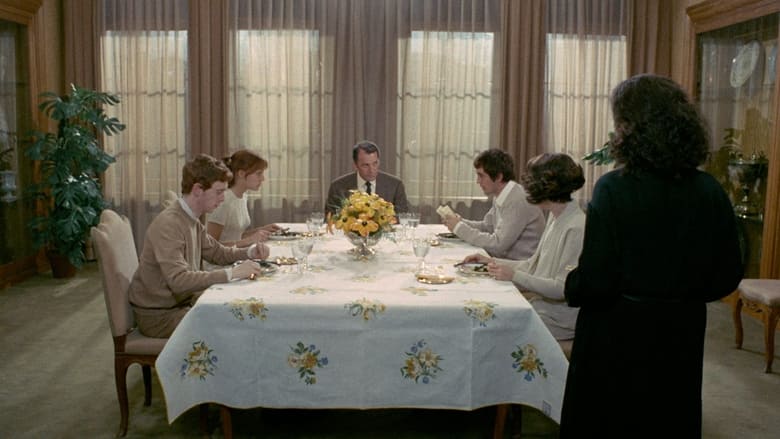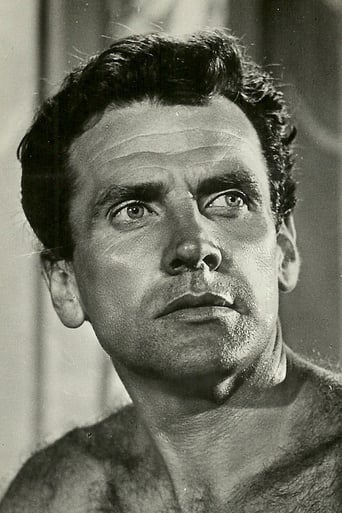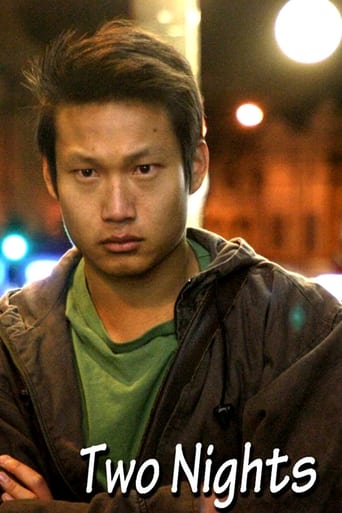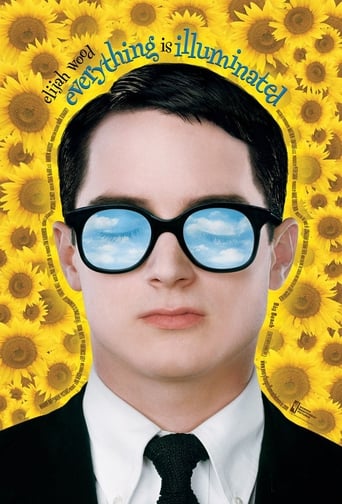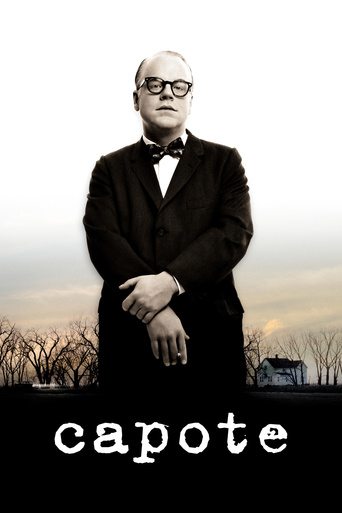Theorem (1969)
A wealthy Italian household is turned upside down when a handsome stranger arrives, seduces every family member and then disappears. Each has an epiphany of sorts, but none can figure out who the seductive visitor was or why he came.
Watch Trailer
Free Trial Channels
Cast


Similar titles
Reviews
the audience applauded
A brilliant film that helped define a genre
Great movie. Not sure what people expected but I found it highly entertaining.
One of the film's great tricks is that, for a time, you think it will go down a rabbit hole of unrealistic glorification.
Only Pasolini could've filmed something of this kind. No-one else is this crazy. Almost fifty years after its release, the interpretation of the film has been almost settled: the visitor is God or some other superhuman entity, the obsession the family members develop is the taste of the unknown and their final mental breakdown is the inability of the bourgeois to live authentic feelings and to break their own limits. Supporting this interpretation is Emilia's fate, who unlike her masters goes back to her birthplace and is changed in better, almost to a God-like state.Sure, this film is not for everyone, least of all for people who know nothing about the context of Pasolini's beliefs and Italian society. But when you get them, you see a masterpiece of artistry, which is so much so that it loses itself in its mystery and gives little to the watcher to take home. What I mean is that, like many successful attempts at genius, "Teorema" lacks any emotional response by its viewers and any response at all by non intellectuals. It is regardless a milestone in Italian cinema and an incredible showcase of dream-like artistry.
Ranks alongside his "Gospel According to St Mathew." I saw several metaphorical links in "Theorem" to Fellini's "Nights of Cabiria," a film scripted by Pasolini; the contribution of Pasolini to the lovely Fellini film is often overlooked.The allusion to the Terrence Stamp character as Christ is not difficult to pick up. The political context is also more than obvious. "Theorem" encapsulates all of Pasolini's genius evident elsewhere, in one work.Here's a Pier Paolo Pasolini film that's different--he uses good looking established actors unlike his other works where he would pick actors unknown and less attractive. In "Theorem" the good looking characters are contrasted with the ugly, non-professional actors intentionally.The film might appear overtly to be about sex but Pasolini's canvas captures a lot more than the obvious. Brilliant casting. Mozart's "Requiem" rendered by the Russian Academy Choir is transcendental. Morricone's use of wind instruments is so different here but captures the mood of loneliness. Terrence Stamp is the eye candy of the film, just as he was in "Far from the Madding Crowd". All three ladies: Sylvano Mangano, Laura Betti and former Mrs Jean Luc Godard (Ann Wiazemsky) give more than interesting performances--each body movement tells you so much. Words are rarely required to communicate in "Theorem"; visuals and music do more in that department.
Pier Paolo Pasolini's "Teorema" had me dumbfounded! It was one of those rare instances where I was unable to formulate a clear opinion of what I thought about it. For one, this minimalist picture from the controversial filmmaker has "art-house" written all over it. Yes, there is extreme minimalism, very little dialog (it seems the number of actual spoken words in the film is about 923!). This almost silent film is allegorical rife with symbolism and religious connotations, and may not be a very interesting subject matter for those looking at mainstream cinema, that is for sure! Terence Stamp is "The Visitor", a mysterious stranger who once visits the mansion of a rich family of four. The man of the house is Paolo, a rich businessman who owns a factory, and then there's his awkward son, a daughter, a beautiful wife who is sexually repressed and a scary-looking maid. In the next few days that pass, this visitor has sexual encounters with each of the inhabitants of the house! In a way, he "seduces" them. And almost as suddenly as he appears, he soon takes leave of them, leaving them in a state like never before! All of these people he "touched" exhibit marked changes in their lives, of a different level altogether! The "consequences" forms the crux of this strange film and paves way for detailed discussion! What makes Pasolini's film so important is the daring concept that Pasolini presents to his viewers with a script set in the contemporary world. From what I understand, The visitor is supposed to be a God-send or an angel who influences the members of the house in one way or another. Why "sexually" is a good question, but that depends on how you see it. Is it the touch of God, or the Devil's seduction? Perhaps it is symbolic of a "close encounter with God"? So what exactly does God do to these bourgeois individuals? Apparently he makes them see beyond their pretentious cocooned life. They all go through a self-realization phase, which they all confess one by one to the Visitor when it is time for him to leave. But he isn't there to see the changes. Are these changes always positive? Does being "blessed" always lead to happiness? Or is there another side to it? Pasolini, through his seemingly simple yet highly complex allegory poses these ambiguous questions, which likely polarized his audiences, based on their religious beliefs! Being an atheist I wasn't particularly offended or overwhelmed with the subject, but I was definitely intrigued by how drastically different this film and its viewpoint is! Pasolini's technique of story-telling is poetic! It is almost like Pasolini deliberately chose the visual style as exists in the film to give it a meditative form. Long takes, solitude, mostly gentle atmosphere, intermittent random scenes of a vast empty desert, the presence of a radiant light just before the visitor appears, all tactfully done! The visuals are also enchanting, the cinematography is beautiful, with the colours changing from sepia (in the beginning during the introduction of the characters, perhaps to show their 'ordinary' life?) to vividly colourful (a marked change with the introduction of the "visitor"?). It is then, mostly on the technical front and the handling of the film with its layered theme that makes "Teorema" most watchable.Where it falters is in some (only a couple or three) haphazard sequences here and there, and in the tepid acting from the actors playing the son and the daughter. I don't know if it was intentional but the daughter, Odetta (Anne Wiazemsky) who also appeared in Robert Bresson's "Au Hasard Balthazar" delivers what could be one of the most wooden acting performances I've seen! At one point it even becomes slightly apparent that she is reading her lines from cue cards!! The son, Pietro is played by Andrés José Cruz Soublette also seems somewhat awkward, but maybe his acting reflects his character who behaves like that owing to being a closeted homosexual! The finest acting then comes from Terence Stamp, even though he doesn't have much to do except give mysterious smiles once in a while and appear compassionate! A close second best actor in the film is the beautiful Silvana Magnano, the lady of the house. Her Lucia's perplexed state of mind is wonderfully portrayed by the actress. Also impressive is Laura Betti as Emilia, the maid. Laura looks and acts the weird Emilia quite earnestly.But how does one eventually evaluate and rate something as flummoxing as "Teorema"? Why is it even called that anyway? ('Teorema' means 'Theorem') There are views that the structure of the film itself and the psychological transformation of all characters follow a single formulaic structure! The film doesn't boast of great acting, neither is it an intimate character portrait. Not all characters are dug deep into. The subject matter is not what one would fall in love with, but it sure is extremely interesting! But in spite of this, there is something about "Teorema" that makes it worthwhile. While the visuals and the characters haunt your memory long after the film is over, the happenings in the narrative will give you something to ponder about. It is not a film one may go ga-ga about, but can one ever forget having watched "Teorema"? Hell, no! Score: 8/10.
Someone said you should look at your mood before rating this film. I had to walk an unnecessary kilometre to buy my ticket, someone was using a cellphone during the credits, and the WHOLE film was shown in a too-wide aspect ratio - after I had alerted the organisers, having seen the problem while watching the splash-page, over and over. (It was shown rather dimly off a DVD.) So I have to give the film a huge discount for my grumpiness.I didn't like it. I don't despise it, because I think Pasolini was sincere in making it, not trying to put one over us with pretentious piffle (cf Fellini). It's certainly not the worst film ever made, not dishonest, condescending or manipulative, just slow, opaque and uninvolving (but maybe the last is just me; see above).My (and most people's?) disconnect from Teorema is that we can no longer identify with the Italian Catholic guilt that overcame most of the family after succumbing to Terence Stamp's undoubted charms. He had sex with them (usually at their instigation - to say "he seduced them" is to exaggerate wildly) and a reaction is to be expected, but catatonia? Levitation and autointerment? Bad art? (OK, bad art.) And is there really a volcanic desert handy to the Milan (?) railway station that anyone can walk to naked without being intercepted?So when it (finally!) said "FINE" I said "Fine by me."

